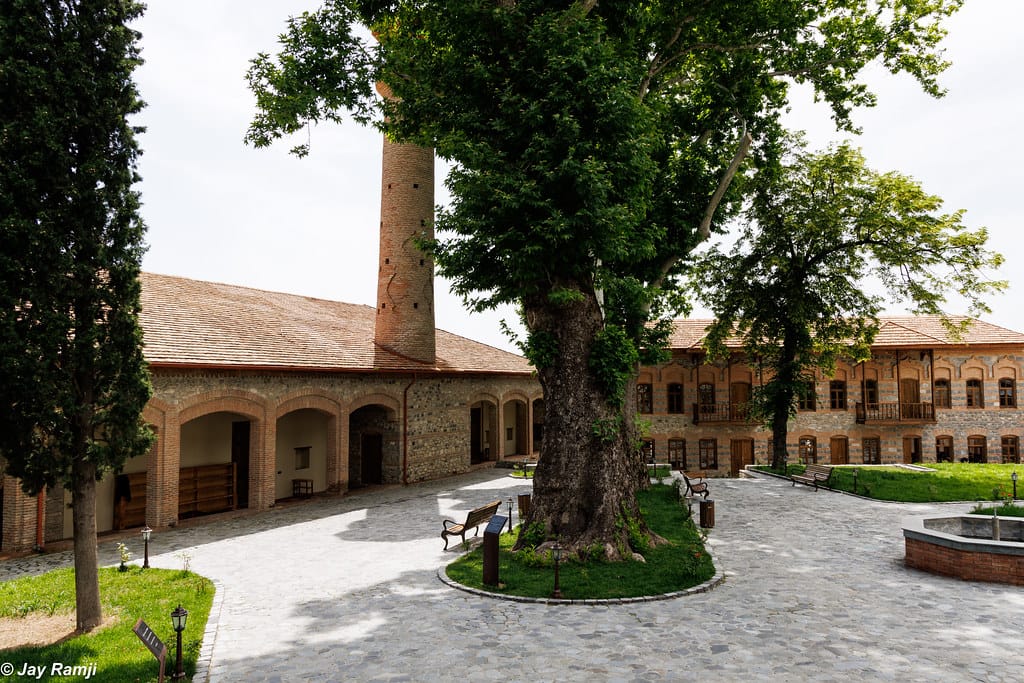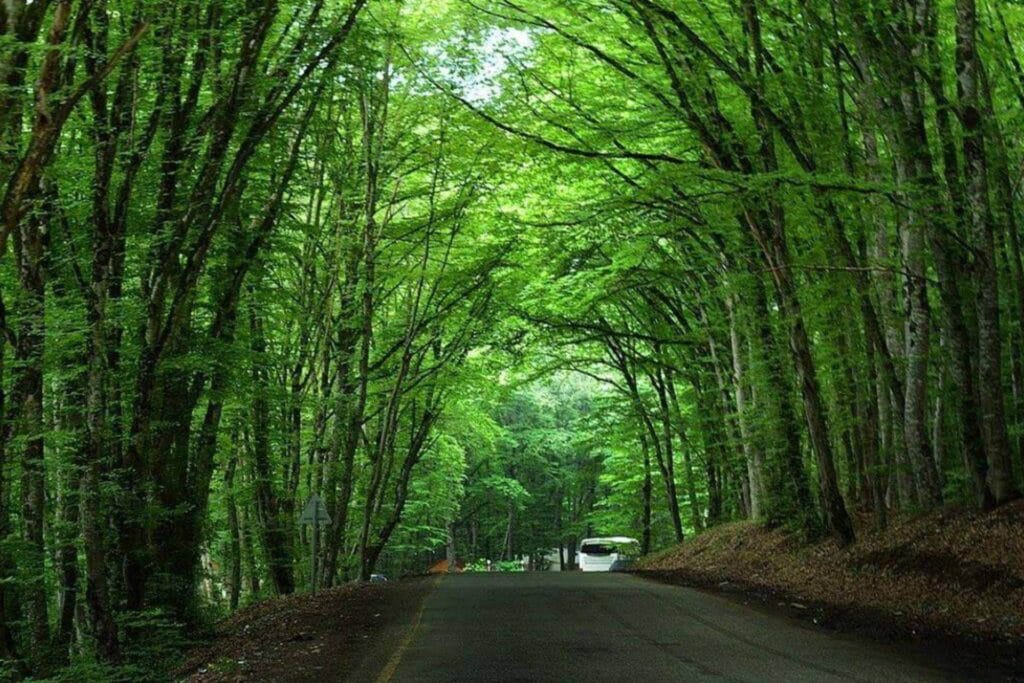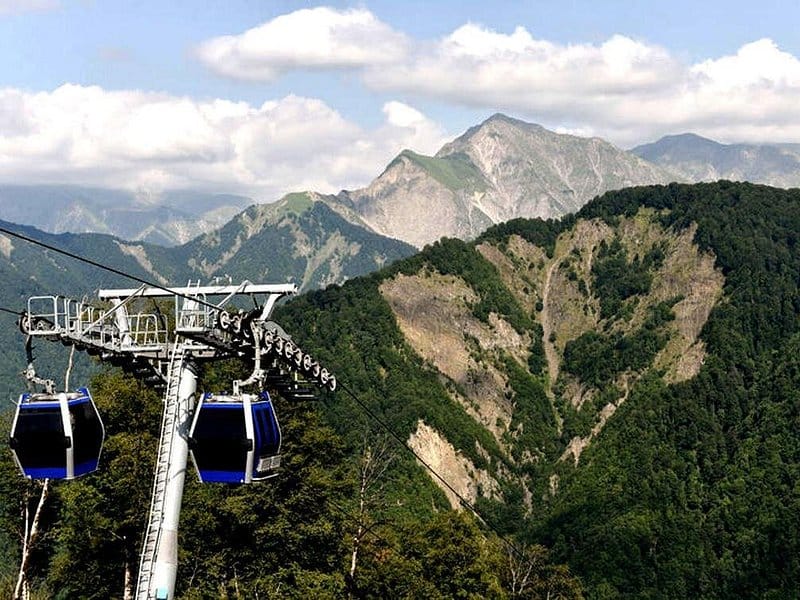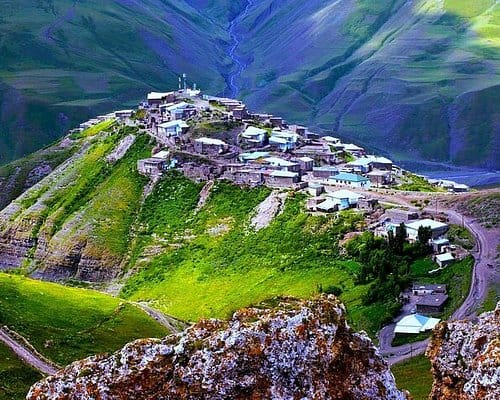Cultural Treasures of Sheki – A Journey Through History
Sheki, located in the picturesque backdrop of the Greater Caucasus Mountains, offers a unique blend of rich history, stunning architecture, and vibrant local culture. This journey through Sheki invites you to explore its Cultural Treasures, from magnificent palaces to ancient churches. The town is not just a feast for the eyes but also a place where one can immerse themselves in the local traditions and narratives that have shaped this region for centuries.
Introduction: Sheki is one of Azerbaijan’s most picturesque towns, nestled at the foot of the Greater Caucasus Mountains. Known for its rich history, handicrafts, and hospitality, Sheki offers a deep cultural experience for those who want more than sightseeing. The town serves as a cultural hub, showcasing the essence of Azerbaijani life through its festivals, art, and traditions. Visitors can engage with local artisans who preserve ancient crafts and attend vibrant markets that brim with life and color.
Sheki’s Cultural Treasures reflect its rich history and vibrant community. Each site tells a story, from the beautifully preserved architecture to the enduring customs of the local people. For instance, the local festivals, such as the Sheki Silk Festival, highlight the importance of silk weaving in the region’s history and economy. This celebration draws visitors from all over, eager to witness traditional performances, explore artisan stalls, and sample local delicacies.
The blend of historical significance and modern-day culture makes Sheki an essential stop for travelers eager to understand Azerbaijan’s heritage. The city’s ability to maintain its traditions while embracing modernity is visible in its architecture, cuisine, and local art. Visitors often find themselves captivated by the colorful mosaics and intricate designs that tell the story of Sheki’s past and present.
Sheki Khan’s Palace Built in the 18th century, this UNESCO-listed palace dazzles visitors with stained glass windows, elaborate frescoes, and intricate wood carvings. The palace is a testament to the craftsmanship of the era, and guided tours provide insights into the lives of its former rulers. The gardens surrounding the palace also offer a tranquil space for reflection, with pathways lined with flowers and trees that have stood for generations.
Visitors can marvel at the architecture and even enjoy local events hosted in this historic space. Cultural performances often take place in the palace, showcasing traditional music and dance, which invite guests to participate and immerse themselves in the local culture. These events provide a unique opportunity for travelers to connect with the community and learn about its heritage through firsthand experience.
The village’s serene environment and historical significance make it a must-visit for anyone interested in the region’s rich past. Visitors often explore the nearby natural parks, where hiking trails offer stunning views of the Caucasus Mountains and the opportunity to spot rare wildlife. The community in Kish is known for its warm hospitality, ensuring that every visitor feels welcomed and appreciated.
Try the local cuisine, which is a celebration of flavors and traditions. Dishes like ‘piti’ (a lamb and chickpea stew) and ‘dushbara’ (small dumplings) are not just meals but a way of connecting with the region’s history. Dining in Sheki often becomes a communal experience, where locals share their stories over a meal, bringing together people from diverse backgrounds.
Sheki Khan’s Palace Built in the 18th century, this UNESCO-listed palace dazzles visitors with stained glass windows, elaborate frescoes, and intricate wood carvings. It stands as an emblem of Sheki’s historical legacy, offering a glimpse into the opulence of the Sheki Khanate. The palace is meticulously preserved, with efforts made to ensure that the details reflect the craftsmanship of the artisans who built it. Each room tells a story of grandeur, making it a highlight for anyone visiting Sheki.
Caravanserai This large stone inn once served Silk Road travelers. Today, it’s a museum and sometimes a hotel, letting guests sleep where ancient merchants once stayed. The caravanserai is a focal point in Sheki, serving as a reminder of the town’s historical role as a trade hub. Visitors can explore exhibits that showcase artifacts from the Silk Road era, and the building itself is an architectural marvel, highlighting the ingenuity of its creators.
Kish Village and Church Kish is home to one of the oldest Christian churches in the Caucasus, the Church of Saint Elishe, believed to date back to the 1st century. The village itself offers a glimpse into the lives of early Christians in the region, with archaeological sites that tell the story of its historical significance. The church, with its ancient architecture, is a serene place for reflection and spiritual connection, drawing visitors interested in history and faith.
Local Crafts and Cuisine Sheki is known for silk weaving, stained glass (shebeke), and halva—a rich, sweet dessert. The craftsmanship involved in creating shebeke is a cherished tradition, with artisans practicing their skills passed down through generations. Visitors can watch these craftsmen at work and even try their hand at creating their own pieces. The culinary scene in Sheki also reflects this artistry, with local chefs emphasizing fresh, regional ingredients in their dishes.
In conclusion, Sheki stands as a testament to Azerbaijan’s rich cultural tapestry, offering travelers a chance to experience its Cultural Treasures firsthand. Whether it’s through exploring historical sites, engaging with local artisans, or savoring traditional dishes, Sheki promises an unforgettable journey. The intertwining of history and culture makes it a unique destination for those seeking deeper understanding and appreciation of Azerbaijan’s heritage.












